A Complete List Of Fast Fashion Brands To Avoid
The fashion industry is undergoing major changes. Thanks to fast fashion brands, trends change faster than ever before, clothes are becoming cheaper than ethically possible, and shopping has become a hobby. Fast fashion and global chains have dominated our high streets and online shopping. But what is fast fashion, and how does it impact people, the planet, and animals?
WHAT IS FAST FASHION?
Fast fashion can be defined as cheap, trendy clothing. The clothes take inspiration from the catwalk or celebrity culture and turn them into clothes in high street stores at breakneck speed to satisfy consumer demand. The goal is to get the newest styles on the market as fast as possible. So shoppers can snap them up while they are still at the height of their popularity. At that time, consumers also can update their wardrobes very quickly and affordably.
But this over-consumption of cheaply-made clothes is leading to the huge growth of textile waste, pollution, and the depletion of natural resources. It is a key part of a toxic system of overproduction and consumption that has made the fashion industry one of the world's largest polluters. It has been a social issue that we can no longer ignore.
How does fast fashion impact us?
Fast fashion’s impact on the planet, people, and animals is enormous. The pressure to reduce costs and accelerate environmental pollution means that environmental corners are more likely to be cut: fast fashion’s negative impact includes its use of cheap, toxic textiles and dyes, and the creation of an alarming amount of textile waste.
Garment workers have also been found to work in dangerous environments for low wages and without basic human rights. Animals are also impacted by fast fashion. Because their skin and fur are used to make products, toxic chemicals, and microfibres that are released in waterways and that are often ingested by marine life.
Finally, fast fashion vendors can impact consumers themselves, making us believe we need to shop more and more to keep up with the fashion trend, and creating a constant sense of need and ultimate dissatisfaction.
However, the easiest way to support sustainable fashion is to avoid shopping at fast fashion brands. Here are the 15 worst fast fashion brands to avoid in 2021.
15 fast fashion brands to avoid
1. Forever 21
Forever 21 is the first big fast fashion brand to go bankrupt in 2019. With the demand for affordable, trendy clothing growing, it began to churn out new styles at an alarmingly fast pace.
But this will come with a social and environmental cost. The brand is not transparent about how its products are produced and where. We also do not know if it’s doing something to mitigate its huge environmental impact. On its Social Responsibility page, we can read: “Forever 21 also shares the goal of eliminating child labor and forced labor”. Does it mean that the company still uses these abusive working practices?
Alongside many other scandals, Forever 21 was once accused of shaming its body by sending weight loss sticks to customers who ordered plus-size clothes.
2. Zara
Zara is perhaps the most well-known fast fashion brand in the world. The Spanish-based fashion giant was a pioneer of the fast fashion industry.
The brand has a textile recycling program, but it is not transparent about the number of resources that go into the production of its clothes. We also do not know if it’s on track to meet its target to reduce its greenhouse gas emissions.
It’s conducting audits of subcontractors to review if they’re complying with its code of conduct, but the results aren’t entirely public. The company also doesn’t pay its garment workers living wages.
In 2017, Zara customers in Istanbul found secret messages in clothing. They were written by garment workers who claimed they had to work for free before the manufacturer producing clothes for Zara went bankrupt.
3. H&M
H&M, a famous Swedish retailer, is the second-largest fast fashion brand in the world. You can often hear great news about the brand. That’s because they’re really good at greenwashing, which makes them look more sustainable and ethical than they really are.
The brand has a clothing recycling campaign which sounds great at first, but in fact, only 35% of clothing gets recycled. Clothes are actually good quality and you don’t have to discard them after a couple of months.
The other thing H&M is really great at is promises, but when the time comes they fail to keep those promises. For example, H&M pledged to offer fair wages to its workers by 2018. It’s 2021 now, and they still haven’t pay a living wage or maintain safety regulations.
4. Shein
SHEIN is one of the worst fast-fashion companies in 2021. The Chinese-based fast-fashion site is known for selling high volumes of trendy clothes at a low price. Unfortunately, the company is known for misleading customers and has been called out online by several fashion YouTubers.
The brand promotes the throw-away culture that fast fashion brands are promoting at the expense of the environment. There is no evidence that Shein trying to reduce the impact on the environment.
What’s more, Shein assures that it doesn’t use forced or child labor and that it offers its workers above-average wages. But it is hard to believe that the company pays its workers fairly, with so cheap products selling.
Shein’s business model is based on deceiving customers and destroying the environment. And underpaid workers probably. We shouldn’t support a brand that does these kinds of things with our money!
5. Mango
Mango is one of many fast fashion brands that use greenwashing tactics to make themselves look more eco-friendly.
Despite the Transparency Pledge, Sustainability Report, Code of Conduct, and Code of Ethics posted on its website, the company lacks clear sustainability commitments and transparency about its garment production.
What’s more, the company doesn’t disclose any of its suppliers, how much they pay to their workers, and what rights they provide them.
The brand's Code of Conduct reveals that minimum-wage workers are paid the “legal minimum, not the recommended wage level”. Mango should do better and pay its garment workers living wages!
6. Boohoo
Boohoo is another typical example of suppliers, designing and putting clothes on the market even faster than before, sometimes in less than a week. The brand seems to make many promises, but doesn’t do much to improve in the social and environmental parts.
According to the Guardian, these UK workers earn illegally low wages that are less than a minimum wage. And there’s also the environmental cost of low-quality, cheap clothing, made with unsustainable materials in big quantities.
Workers were also compelled to go to work while being sick with COVID-19, and the company provided barely any protective equipment nor hand sanitizer.
The Environmental Audit Committee published a report naming Boohoo as one of the least sustainable fashion brands in the UK. Not surprising for a brand selling so much bad quality clothing!
7. Urban Outfitters
Urban Outfitters is one of America’s largest fast fashion retailers.
The retailers don’t disclose any specific information about what it’s doing to help the environment, probably because it’s not doing much. Customers do not have access to information about the brand’s supply chain and where its suppliers are located.
There is also no evidence that the company’s workers are paid fair wages. Back in 2015, Urban Outfitters asked its employees to work for free on the weekends, as it would be a “great team-building activity”. That's so ridiculous.
Apart from that, the company has also been accused of cultural appropriation and stealing designs from independent artists on Etsy. In 2020, the company was, once again, accused of stealing the design of an Australian indigenous artist and using it to sell outdoor rugs.
8. Primark
Primark— an Irish fast-fashion brand with over 380 stores in 13 countries— is another clothing brand linked to the Rana Plaza collapse in 2013. Their clothes are famous for their extremely low prices and maybe even lower quality.
Even though Primark states that factories must follow a Code of Conduct, there is no evidence that workers are paid fairly and that they work in decent and safe conditions. Customers have found “SOS” messages in Primark clothing, written by Chinese inmates working in garment factories. They were claiming to work for 15 hours each day and denouncing inhumane labor practices.
Although Primark shares the locations of most factories it is working with; there’s room for improvement in terms of transparency. The company is a member of the Sustainable Apparel Coalition, and it has been donating unsold clothing to charities.
Although Primark shares the locations of most factories it is working with; there’s room for improvement in terms of transparency. The company is a member of the Sustainable Apparel Coalition, and it has been donating unsold clothing to charities.
However, there is not enough relevant information about what Primark is doing to reduce its huge environmental footprint. In a fact, it should do better to relieve that pressure.
UK-based fast fashion brand, Missguided is an online-only retailer that went viral thanks to social media and influencer marketing. Indeed, the brand launches 1,000 new styles every week.
9. Missguided
UK-based fast fashion brand, Missguided is an online-only retailer that went viral thanks to social media and influencer marketing. Indeed, the brand launches 1,000 new styles every week.
With this practice, Missguided’ unsustainable production rate is undoubtedly contributing to the 1.2 billion tons of greenhouse gas emissions and 18.6 million tons of clothing waste produced in 2020.
While the brand’s aim is to "empower women", female workers are paid significantly less. Compared to male employees, female workers are less likely to receive a bonus too. We also don’t know if these workers are paid living wages.
In 2017, the brand was found to be selling products that were supposedly “faux fur”, containing real fur from cats, raccoon dogs, minks, and rabbits.
The brand completely disregards workers’ rights and the current environmental crises by selling ultra-cheap, disposable fashion. We need to avoid it.
10. Victoria’s Secret
Victoria’s Secret is one of America’s most famous fast fashion brands. It does not seem to have done anything to reduce its environmental footprint, and its products are mostly made from unsustainable materials.
Victoria’s Secret is not doing better in the social sphere. As its supply chain is not certified by official labor standards, we cannot be sure that garment workers are paid a fair wage and treated ethically.
In addition, many models were sexually harassed and bullied by two top executives, and those who complained about this lost their jobs shortly after.
11. Fashion Nova
Fashion Nova is one of many fast fashion companies to use influencer marketing, celebrity endorsements, and a strong social media presence to create a false sense of morality.
Sure, we have to admit, Fashion nova is very good at influencer marketing. But otherwise, it sells cheap clothing that was made by underpaid workers in Los Angeles in quantities. We can’t support it anymore.
12. Free People
Similarly to Anthropologie, Free People doesn’t seem like fast fashion, it’s so much more expensive. But the brand still uses unsustainable materials such as polyester and doesn’t share any information about how their garments were made. This is usually a sign for using sweatshops. We should boycott the type of company.
13. Nasty Gal
The company started out as a vintage reseller in 2006 but it quickly became an online retail giant. In 2016 the brand has filed for bankruptcy and has been bought by Boohoo the following year. Fast fashion retailer Nasty Gal fails to provide sufficient information on how it reduces its impact on people planet and animals.
At first sight, Nasty Gal doesn’t look like a fast-fashion brand, because its prices are much higher than the average fast-fashion prices. And it seems like everything is on sale on their website all the time. So you think you get a good deal on high-end clothes, but actually, you just buy low-quality fast fashion at a normal price. The materials are cheap and synthetic, the fits are weird, and the clothes look much worse in real life than on the website.
14. Pretty Little Thing
Pretty Little Thing has a lengthy list of celebrity brand ambassadors.
In 2020, investigations revealed that Pretty Little Thing's cheap, trendy clothing is made in Leicester sweatshops where workers made less than £4 an hour. One PLT distribution center in Sheffield experienced a large COVID-19 outbreak after failing to use social distancing or require its employees to wear masks.
This company has no sense of social responsibility and humanitarianism, we should avoid the brand.
15. Topshop
Topshop is struggling financially in 2020. Many fashion experts predict they're one of the next fast-fashion giants to go under.
The company's founder Philip Green has been accused of making racist comments, knowingly using sweatshops, avoiding paying his taxes, draining employees' pension funds, as well as sexually harassing and bullying staff. In 2019, Green was found guilty on four counts of misdemeanor assault for inappropriately touching and spanking a Pilates instructor in Arizona.
More Fast Fashion Brands to Avoid
- Cotton On
- Brandy Melville
- Garage
- Yesstyle
- Romwe
- American Eagle
- Old Navy
- Gap
- Anthropologie
- Aerie
- Uniqlo
- Bershka
- Stradivarius
- ASOS
- Pull & Bear
- Riachuelo
- AliExpress
- Zaful
- Hollister
- Anthropologie
What can we do?
All these fast fashion brands are promoting disposable fashion. It is an inherently unsustainable and unethical business model, which we stick to reject.So, what can be done about these unethical fashion giants? In addition to avoiding shopping at fast fashion brands and start purchasing from sustainable and ethical brands, we can also do the following things.
Firstly, as a consumer, we need to make better decisions about fashion clothes brand. Fast fashion retailers have grown enormously because people buy their crap. It’s a direct endorsement for environmental destruction and human misery when they make a purchase from these brands.
Secondly, we need to spread the word. Share this article! And let’s pressure those fast fashion stores like Bella and Gigi Hadid, Kylie and Kendall Jenner, or Alexis Ren to stop working for these agents of misery. It’s important to make everyone know more about the impact of fast fashion.
Thirdly, organizations like the Sustainable Apparel Coalition (SAC) should pressure these retailers to join their ranks, and if they refuse, SAC should continuously shine a light on their questionable practices. SAC also can adopt an innovative means of delving into the supply chains of various brands across many industries.
FINAL THOUGHTS
Sure, it may be a bit of a challenge to make the worst fast fashion brands to be more fair, honest, and conscious about what goes on within their supply chains. But if the big high street brands can make slow but steady improvements, so can they.
Let's work together to avoid fast fashion brands and get fashion back on track!
Post in:https://me-poppy.blogspot.com


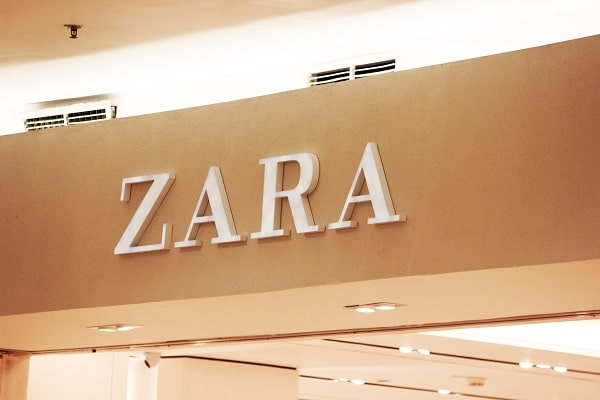
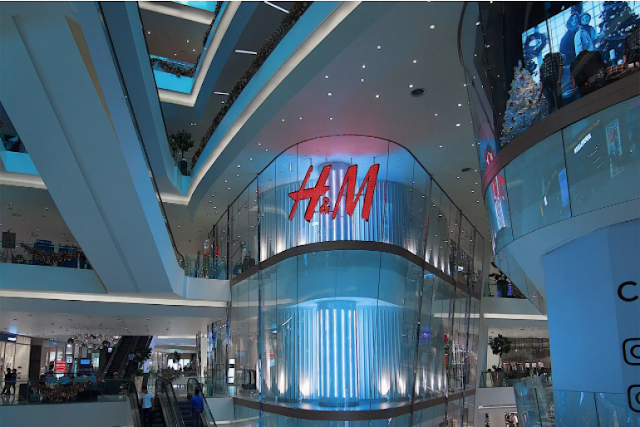
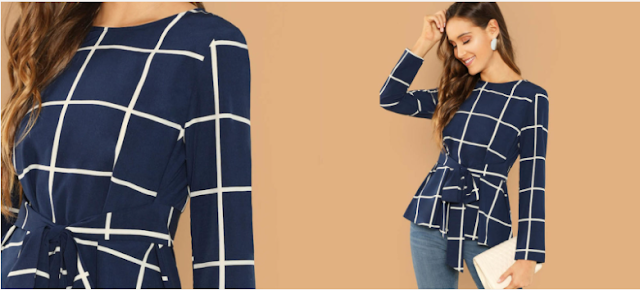
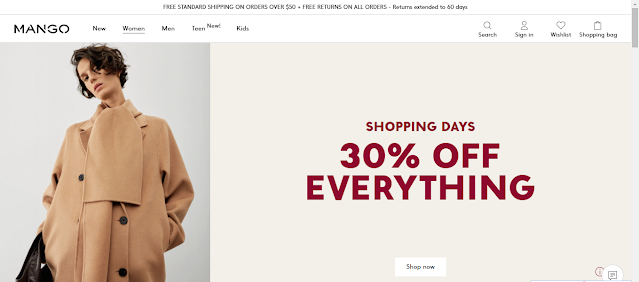
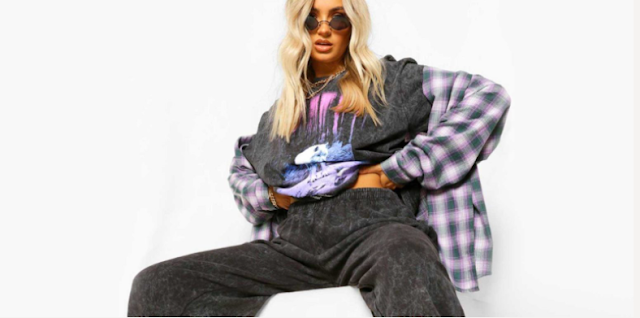






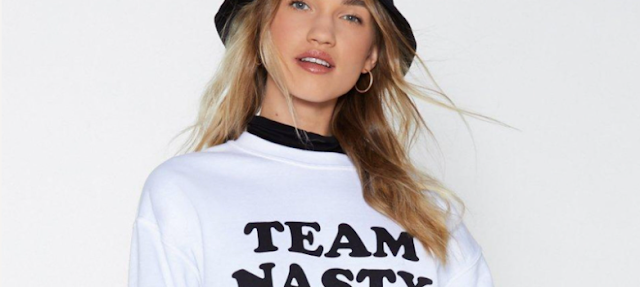
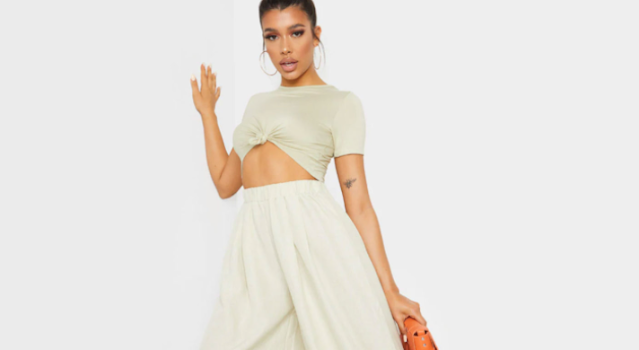



This comment has been removed by a blog administrator.
ReplyDelete